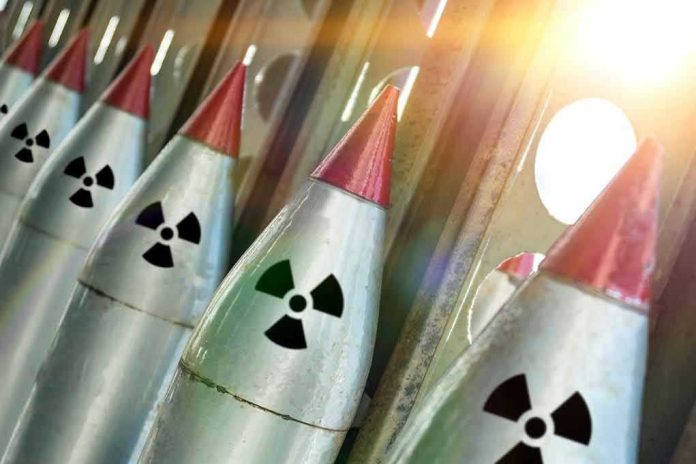
For the first time in its 25-year history, America’s nuclear security agency has sent home 80% of its workforce, leaving fewer than 400 people to safeguard the nation’s entire nuclear weapons arsenal.
Story Snapshot
- National Nuclear Security Administration furloughs 1,400 workers in unprecedented move
- Only 400 essential staff remain to oversee America’s nuclear weapons stockpile
- Government shutdown enters third week with no resolution in sight
- Congressional deadlock over healthcare policy triggers historic national security risk
Nuclear Security Reaches Breaking Point
The National Nuclear Security Administration crossed an alarming threshold this week, implementing its first mass furlough since the agency’s creation in 2000. The decision to send 1,400 workers home while retaining skeletal staff represents a gamble with America’s most sensitive national security infrastructure. This skeleton crew now bears responsibility for maintaining, securing, and overseeing the same nuclear arsenal that required nearly four times their number just days earlier.
Energy Secretary Chris Wright placed blame squarely on Senate Democrats, demanding immediate action to reverse what he characterized as an unprecedented threat to national security. The timing couldn’t be worse, with global tensions requiring maximum vigilance over America’s nuclear capabilities.
Congressional Gridlock Fuels Security Crisis
The shutdown stems from a familiar Washington standoff, but with stakes higher than typical budget battles. Congressional Republicans and Democrats remain deadlocked over Affordable Care Act subsidies, with each party accusing the other of risking national security for political gain. House Speaker Mike Johnson warned the current impasse could become the longest government shutdown in American history, surpassing the previous 35-day record.
Senate Minority Leader Chuck Schumer faces particular criticism from Republican leadership, who argue Democratic demands for healthcare concessions have pushed the crisis beyond reasonable limits. The political calculus appears simple on both sides, yet the consequences grow more severe with each passing day as critical federal operations face unprecedented disruption.
Historical Precedent Shattered
Previous government shutdowns managed to preserve essential national security functions, making the NNSA furloughs a dangerous departure from established protocol. The agency’s semi-autonomous status within the Department of Energy typically provided some insulation from political budget battles. However, the extended duration of this shutdown has forced administrators into uncharted territory where normal contingency plans prove inadequate.
The scale of these furloughs reveals how deeply congressional dysfunction has penetrated America’s security apparatus. Nuclear weapons require constant monitoring, maintenance, and security protocols that were designed assuming full staffing levels. Reducing oversight by 80% creates vulnerabilities that adversaries could potentially exploit, though specific risks remain classified.
Economic and Strategic Consequences Mount
Beyond immediate security concerns, the furloughs threaten long-term institutional knowledge within America’s nuclear complex. Experienced technicians, security personnel, and administrators face financial hardship while their expertise sits idle. The specialized nature of nuclear security work means these skills cannot be easily replaced or rapidly rebuilt once operations resume.
The broader economic impact extends far beyond the 1,400 furloughed workers and their families. Communities surrounding nuclear facilities depend on consistent federal employment, while contractors and suppliers face cascading effects from reduced operations. Previous lengthy shutdowns cost taxpayers billions in lost productivity, back pay, and economic disruption, establishing a pattern that current events seem destined to repeat.
Sources:
Scripps News – Shutdown forces first-ever furlough at US nuclear security agency
NBC Palm Springs – Federal shutdown forces unprecedented furloughs at nuclear security agency




